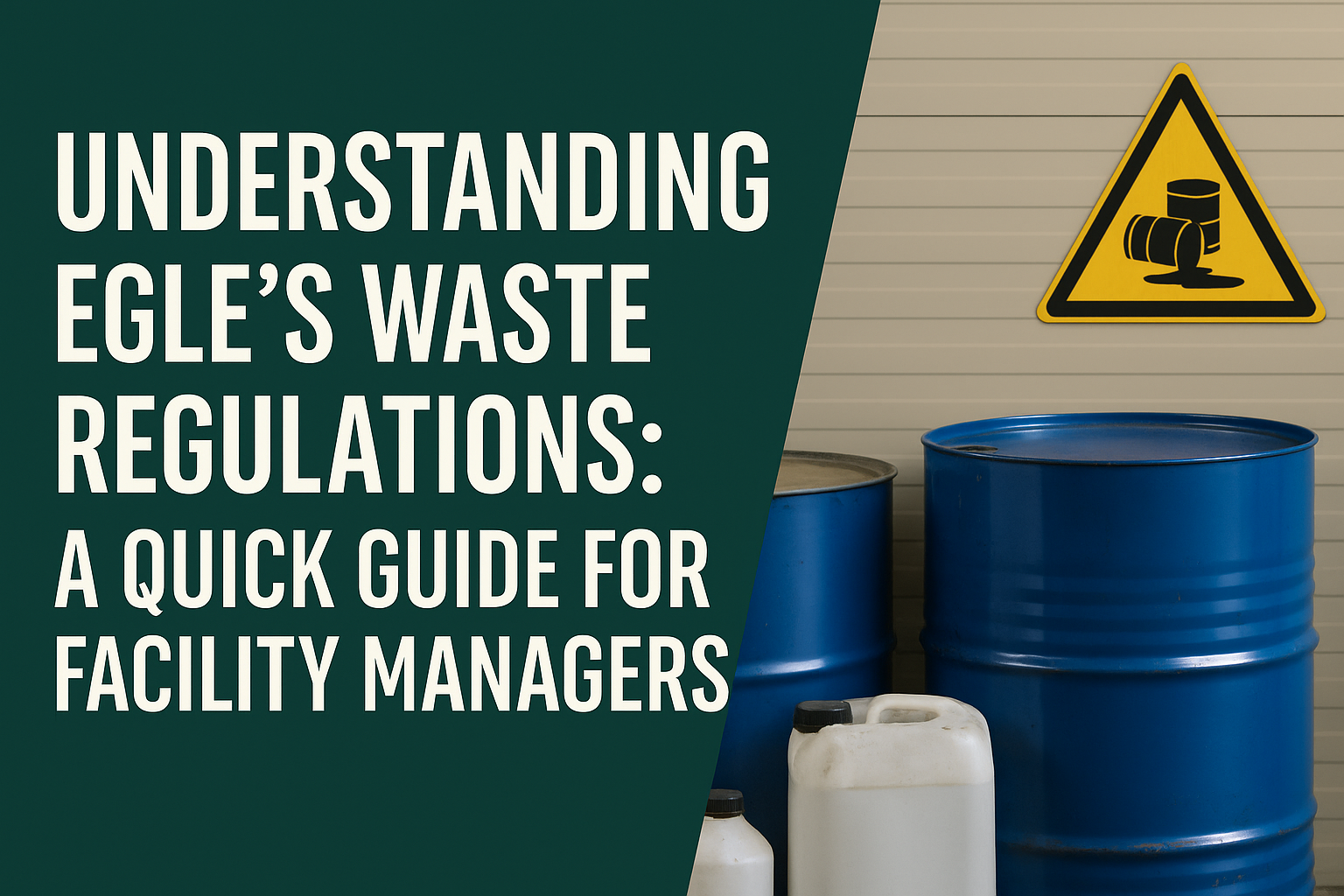Understanding EGLE’s Waste Regulations: A Quick Guide for Facility Managers in Michigan
If you manage a facility in Michigan, staying compliant with environmental regulations is not just good business—it’s the law. The Michigan Department of Environment, Great Lakes, and Energy (EGLE) enforces waste management rules that all businesses generating waste must follow. This quick guide breaks down the essentials for facility managers who want to avoid fines, stay environmentally responsible, and streamline compliance with EGLE’s waste regulations.
What is EGLE and Why Does it Matter to Facility Managers?
EGLE is responsible for protecting Michigan's environment and public health by regulating waste management, air and water quality, and more. For facility managers, EGLE’s oversight means that every aspect of your waste handling—from storage and labeling to disposal—must meet strict standards.
Non-compliance can result in costly penalties and potential environmental harm. Understanding your responsibilities under EGLE's guidelines helps protect your business and Michigan’s natural resources.
Key Types of Waste Regulated by EGLE
Hazardous Waste
Includes materials that are flammable, corrosive, reactive, or toxic.
Must be properly labeled and stored in secure containers.
Requires regular reporting and documentation.
Universal Waste
Includes items like fluorescent bulbs, batteries, and certain pesticides.
Simplified rules apply, but labeling and storage still matter.
Solid and Industrial Waste
Encompasses general trash and byproducts from industrial processes.
Must be disposed of at licensed facilities and tracked per EGLE regulations.
Essential Compliance Tips for Facility Managers
Know Your Generator Status
EGLE classifies facilities as either Large Quantity Generators (LQGs), Small Quantity Generators (SQGs), or Very Small Quantity Generators (VSQGs) based on how much hazardous waste they produce. Your responsibilities vary accordingly.Maintain Accurate Records
Documentation is crucial. Keep manifests, inspection logs, and waste analysis reports up to date and accessible during EGLE inspections.Label and Store Waste Correctly
All waste containers should be labeled with the type of waste and accumulation start date. Storage areas must be secure, and incompatible materials should be separated.Employee Training
Staff should be trained regularly on proper waste handling procedures and emergency protocols in case of spills or exposure.Prepare for Inspections
EGLE inspections can occur unannounced. Be prepared by conducting regular self-audits and addressing any issues proactively.
Why Michigan Businesses Trust Local Environmental Experts
Navigating EGLE’s waste regulations can be complex, especially for busy facility managers. Partnering with a local environmental consulting firm or waste management provider familiar with Michigan’s laws can ensure ongoing compliance and peace of mind.
Conclusion
Facility managers in Michigan play a vital role in ensuring their operations meet EGLE’s waste management standards. By understanding your facility’s responsibilities and keeping up with EGLE’s evolving requirements, you not only avoid penalties—you help protect the Great Lakes State’s environment for future generations.
Need Help With Waste Compliance?
If you’re a facility manager in Michigan and need support with EGLE waste regulations, Contact us today. We specialize in waste management solutions that keep you compliant, efficient, and environmentally responsible.

